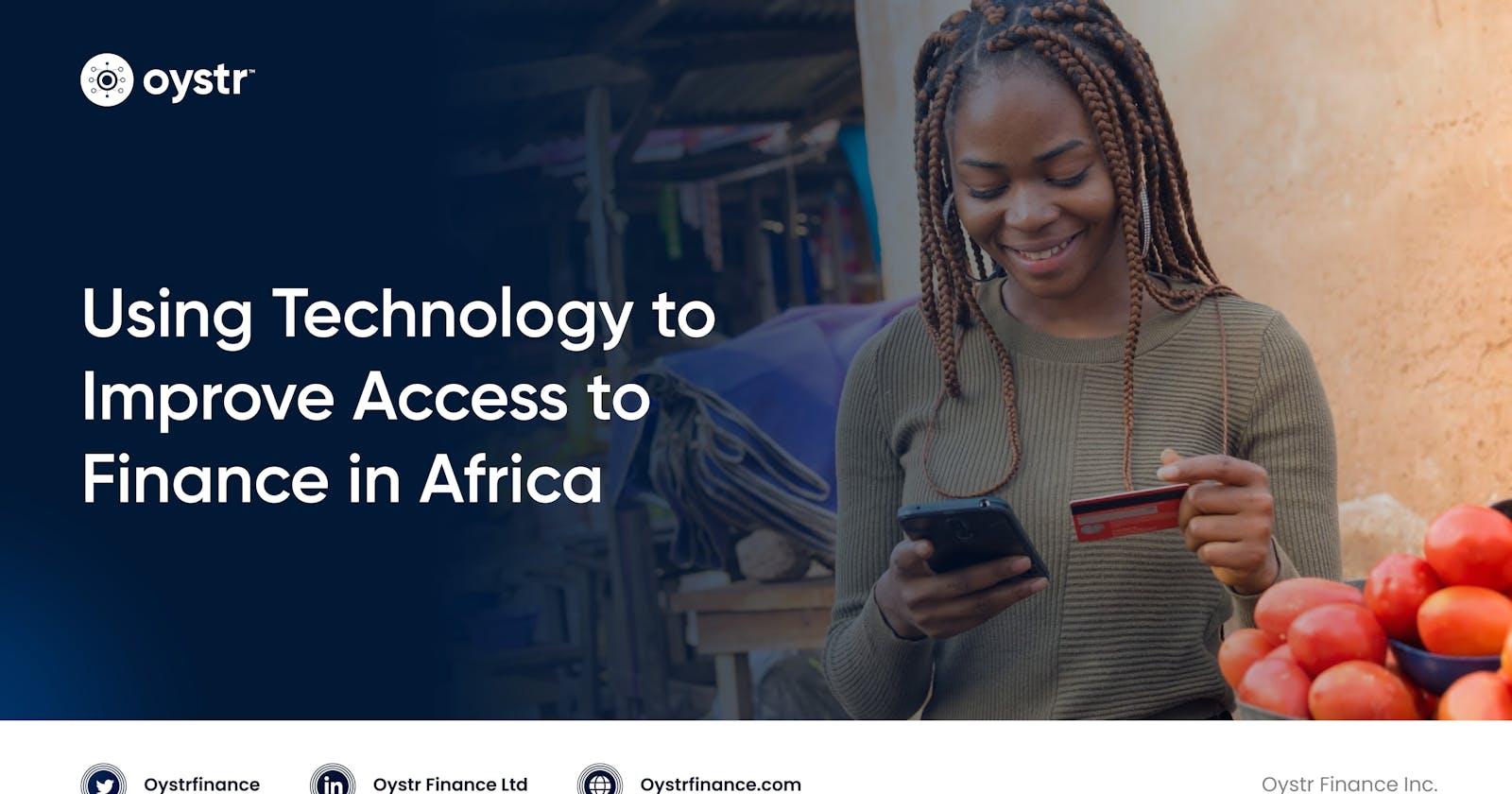With its diversified economies and vast unbanked population, Africa has long struggled to provide widespread access to financial services. However, the advancement of technology has brought in a new era of financial inclusion on the African continent. Africa is seeing a dramatic transition in its financial sector as a result of innovations such as open banking, float, alternative data, and robust lending infrastructure.
In this article, we'll discuss how technological improvements are boosting access to money and unlocking economic potential in Africa.

Facilitating Financial Connectivity Through Open Banking
Open banking, a system that allows third-party developers to access financial data via secure application programming interfaces (APIs), has emerged as a financial inclusion catalyst. Open banking promotes the smooth integration of diverse financial services and applications in Africa, where traditional banking infrastructure is frequently constrained. By securely exchanging customer data, open banking enables customers to access a variety of financial products and services from several suppliers via a single platform or application.
This technology-driven strategy enables individuals and organisations to better manage their finances, compare products, and have access to customised financial solutions. Users, for example, can consolidate their accounts from various banks, monitor their transactions, and analyse their spending habits to make more informed financial decisions. Open banking also encourages innovation by allowing fintech firms to create user-centric solutions that address the specific requirements of underprivileged groups.
Overcoming Liquidity Issues with Float
The concept of float, pioneered by mobile money services, has transformed the way Africans save and handle their money. Float allows users to store and trade money electronically, even without a bank account, in areas where actual cash is often rare. Mobile money providers, like as Safaricom's M-Pesa, have successfully adopted float systems, allowing users to exchange actual cash for digital currency and vice versa.
Float not only offers a secure alternative to cash, but it also supports a variety of financial transactions such as bill payments, money transfers, and merchant payments. This technology has benefited people in distant places the most, letting them to engage in the formal economy and access financial services without the need for actual cash. Float systems have also helped small businesses develop by allowing them to accept digital payments, expand their customer base, and enhance their cash flow.

Using Alternative Data to Increase Credit Access
credit evaluation methodologies frequently fail to reflect the creditworthiness of African individuals and small enterprises that may lack formal credit histories or assets. However, the introduction of alternative data has altered the lending market, allowing previously underserved people to get access to loans.
Alternative data refers to non-traditional sources of information that can be analysed to determine creditworthiness, such as mobile phone usage, utility bill payments, and social media activity. Fintech firms analyse these data points using modern algorithms and machine learning, providing lenders with a more comprehensive and accurate picture of a borrower's financial behaviour.
Lenders can now offer loans to previously unbankable individuals and organisations by incorporating alternative data into credit assessments. This technology-driven approach has the ability to open up economic opportunities, encourage entrepreneurship, and foster long-term economic progress throughout Africa.
Strong Lending Infrastructure
The creation of a robust lending infrastructure is a critical component of enhancing access to finance in Africa. This includes the construction of credit bureaus, digital identity systems, and African-specific credit scoring algorithms. This type of infrastructure enhances transparency, decreases risk, and makes credit distribution easier.
Credit bureaus collect and aggregate credit information from numerous lenders, providing people and businesses with a comprehensive credit history. This enables lenders to make educated decisions about loan approvals and pricing, minimising information asymmetry and improving credit market efficiency.
Digital identity systems are critical for creating confidence and facilitating secure financial transactions. Governments and financial institutions can verify clients and defend against fraud by providing them with a unique digital identity, hence encouraging financial inclusion.
In addition, the development of credit scoring models customised to African markets allows lenders to effectively assess creditworthiness. These models enable a fairer and more inclusive assessment of borrowers by taking into account elements relevant to the local context, such as informal income sources, community links, and prior repayment habits.
Oystr Finance has created these key features to help facilitate lenders in extending credit access to untapped markets. Click the video below to listen to the CEO of Oystr discuss the key ways to use tech to facilitate finance access.

